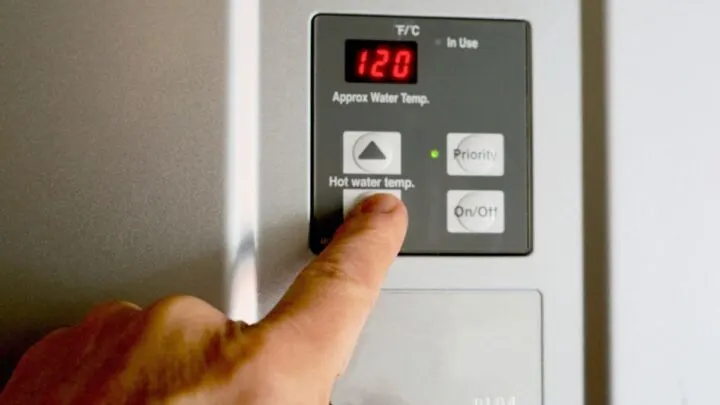The answer to this question depends on the kind of water heater you have.
Industrial-sized heaters, especially those connected in complicated methods to your space, need a professional to detach them and move them elsewhere.
You can move a hot water heater yourself, as long as it is easily and safely detachable. If it looks to be a bit more complicated, then you will need to contact a professional to move the water heater for you.
Read on to learn more about what kinds of water heaters you can move and if it’s safe to do so.
The Risks Of The Venture
First, you need to make a well-structured plan that takes into account all the do’s and don’ts of water heater removal and reinstallation.
As a general layman, you need to know how to remove and reattach water connections to the heater, and even more intricate – you need to know where the electricity supply lines run.
Another important part of moving a water heater is understanding building codes before removing and reinstalling water heaters.
Electricity-operated water heaters are usually the kind that can be removed by untrained laymen in their own properties, but gas heaters usually require you to hire a specialized professional to undertake the job for you.
It’s worthwhile to weigh the risks adequately in advance because with the motivation to save money by not hiring a technician, you can throw yourself into harm’s way.
If you think you can take the risk and are knowledgeable enough to move the water heater, here’s what you need to do.
Scope Out The New Location
Before detaching your entire water heating system and leaving it to catch dust in the old location, you should prepare the new place you are shifting your heater to in advance.
This will determine whether it is suitable to move the water heating system there, in terms of the electricity system, space, and other factors.
The plumbing system will need to be refurbished or installed with new fittings, connections to new electrical supplies will have to be established, and the space has to be conducive to holding the heater.
An essential factor when determining the new location is to check if the installation of vents is possible since electrical water heaters require vent systems.
You will also require pipe fitting through the roof that serves as vents.
For this purpose, you need to have the know-how of plumbing, electrical systems, and even roofing to safely install the vents without causing damage to either of these systems or hurting yourself in the process.
Before selecting a new place to install your water heater, make sure you take a permit to install one, preferably on a raised platform.
Some municipal authorities, especially for apartment buildings, require the water heating systems to be decked out with earthquake-proof features.

How To Disconnect And Drain Your Hot Water Heater
- Turn off the water supply to the entire house/apartment before attempting to disassemble anything.
- Drain all of the water from the heater by turning on both the hot and cold water faucets.
- Make sure all the water has drained, from the pipes as well as the heater before you disconnect the electricity supply from the heater.
- To detach the hot water heating system from the electrical supply, consult the manual which details instructions from the manufacturer of the water heating system. Usually, there will be one breaker indicated for shutting off the electrical supply to the heater.
How To Move And Re-Connect A Hot Water Heater
If you’re ready to move your water heater on your own, here’s how you get the job done:
- Don’t drag, pull, or tow the heater from one location to another, as that can cause damage. Keep it in a horizontal position, and don’t apply more force than necessary.
- Use a trolley or appliance carrier to transfer the heater from the previous location to the next, especially if it is a larger one.
- To prevent damaging the interior of the heater, create a clear space through which you can carry the heater.
- Make sure your new connection mechanisms are fully prepared and running.
- As a preventative measure and to avoid heat damage, run cold water through the faucets and the system before you check the warming/heating systems of the water heater.
- Don’t disconnect gas systems to the entire house or you will have to pay a large sum to a contractor to switch them back on.
- Make sure the electricity supply at the new location is managed by a circuit that can handle the wattage required to connect the water heating system.
- Make sure to let all air in the pipes and systems release before you switch on the supply to the water heater.
- Keep consulting the manual provided by the manufacturer of the heater every step of the installation.
Final Thoughts on Moving a Water Heater
We hope this answers any doubts you had regarding whether you can move a hot water heater or not.
As long as you adhere to the safety measures and take precautions, you can go ahead with the move. It’s generally safe to move an electrical water heater by yourself, as long as you are safe during the process. Gas water heaters will generally require a professional.


